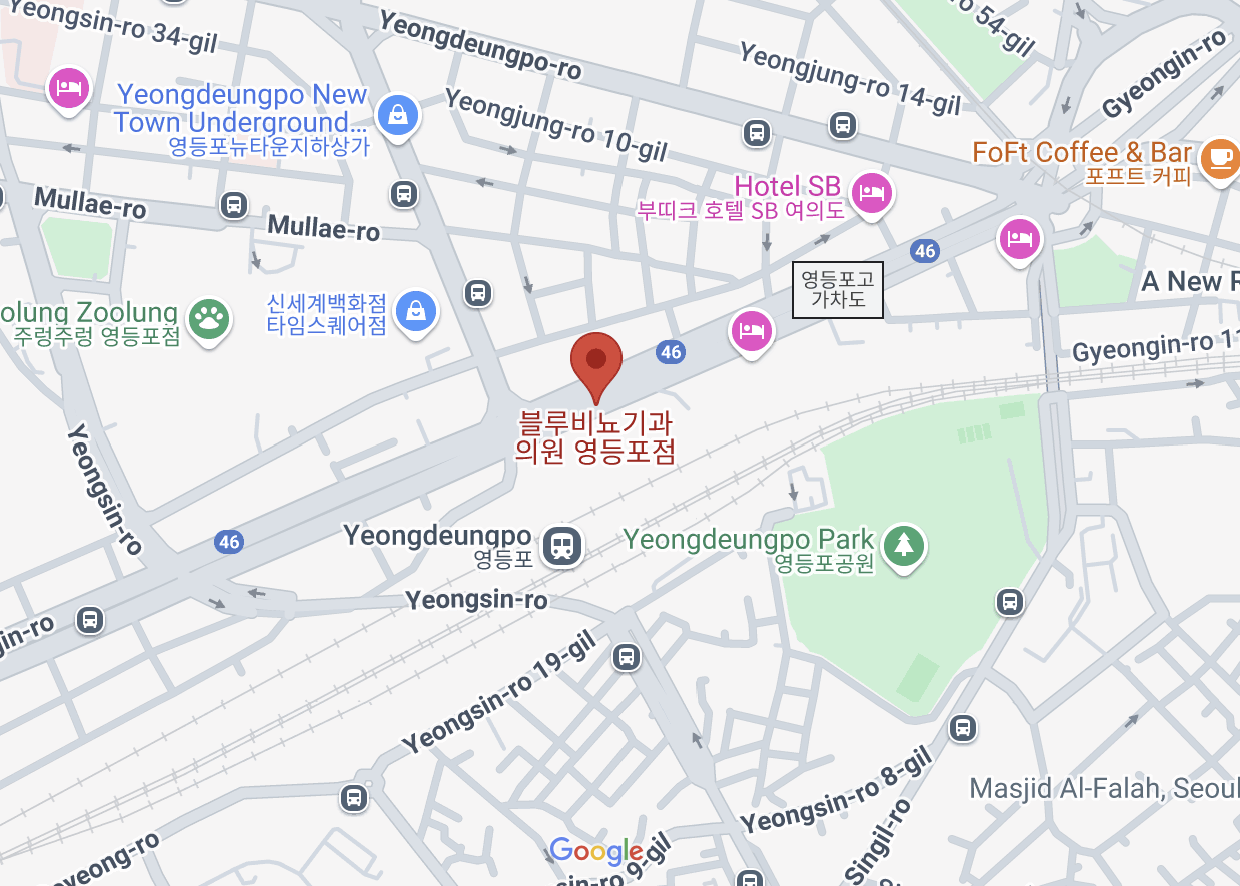Urinary Tract Infection Treatment in Korea
Gangnam, Yeongdeungpo, Yeouido, Jamsil
Prompt Relief: Navigating Urinary Tract Infection (UTI) Treatment in Korea
Urinary Tract Infections (UTIs) are a common and uncomfortable ailment that can affect anyone, though they are particularly prevalent in women. Characterized by a burning sensation during urination, frequent urges, and pelvic discomfort, UTIs can quickly disrupt daily life. If you're an expat or visitor in South Korea experiencing these symptoms, knowing where and how to seek effective treatment is crucial.
Fortunately, Korea's highly efficient and technologically advanced healthcare system, including numerous well-equipped urology and general practice clinics, offers swift and effective diagnosis and treatment for UTIs.
Understanding Urinary Tract Infections (UTIs)
A UTI is an infection in any part of your urinary system—kidneys, ureters, bladder, and urethra. Most infections involve the lower urinary tract: the bladder and the urethra.
Common Symptoms:
- A strong, persistent urge to urinate.
- A burning sensation when urinating.
- Passing frequent, small amounts of urine.
- Cloudy or foul-smelling urine.
- Pelvic pain in women, especially in the center of the pelvis and around the pubic bone.
- Fever, chills, nausea, or back pain can indicate a more severe kidney infection.
Common Causes: UTIs are typically caused by bacteria (most commonly E. coli from the bowel) entering the urinary tract through the urethra. Factors like sexual activity, certain types of birth control, menopause, kidney stones, or a weakened immune system can increase susceptibility.
Diagnosing a UTI in Korea
Korean clinics are highly efficient in diagnosing UTIs, often providing quick results:
- Symptom Review: Your doctor will start by discussing your symptoms and medical history.
- Urinalysis: A urine sample will be tested for the presence of white blood cells, red blood cells, and bacteria, which are indicators of an infection. This test provides rapid initial results.
- Urine Culture: If necessary, a urine culture may be performed to identify the specific type of bacteria causing the infection and determine which antibiotics will be most effective. This test takes a bit longer (typically 24-48 hours) but provides precise guidance for treatment, especially for recurrent or persistent infections.
Effective Treatment Options in Korea
Once a UTI is diagnosed, treatment typically involves a course of antibiotics.
- Antibiotics: The most common treatment for UTIs. The type and duration of antibiotics will depend on the severity of the infection, the type of bacteria, and your medical history. It's crucial to complete the entire course of antibiotics, even if symptoms improve quickly, to ensure the infection is fully eradicated and to prevent antibiotic resistance.
- Pain Relief: Your doctor may also prescribe medication to alleviate pain and burning during urination.
- Follow-up: For recurrent or complicated UTIs, follow-up urine tests may be recommended to ensure the infection has cleared and to identify any underlying causes.
Why Choose Korea for UTI Treatment?
South Korea's healthcare system offers several compelling advantages for individuals seeking prompt and effective UTI treatment:
- Efficient Diagnosis & Treatment: Clinics in Korea are known for their efficiency. You can often get seen by a doctor, have your urine tested, and receive a prescription within a single visit.
- Expert Medical Professionals: Korean doctors, including urologists and general practitioners, are highly trained and experienced in diagnosing and treating UTIs, utilizing up-to-date protocols.
- Advanced Facilities: Clinics are equipped with modern laboratories for accurate and timely urinalysis and urine culture.
- Accessibility & Convenience: With numerous clinics across urban areas, especially in Seoul (e.g., general hospitals, specialized urology clinics like Blue Urology Clinic, and general OB/GYN clinics), access to care is convenient.
- Expat-Friendly Services: Many clinics, particularly in areas frequented by international residents, offer English-speaking staff or translation services, making communication clear and stress-free. Always check beforehand or look for "International Clinic" services.
- Focus on Patient Care: The medical culture prioritizes patient well-being, ensuring a thorough examination and appropriate treatment plan.
Prevention Tips
To reduce your risk of future UTIs:
- Stay Hydrated: Drink plenty of water throughout the day to help flush bacteria from your urinary tract.
- Urinate Frequently: Don't hold your urine for too long.
- Wipe Front to Back: Especially for women, after using the toilet.
- Urinate After Sex: This can help flush away bacteria.
- Avoid Irritating Products: Stay away from perfumed feminine hygiene products, douches, and harsh soaps.
- Consider Cranberry Products: Some studies suggest cranberry products might help prevent UTIs, but consult your doctor.
Don't Delay Treatment
If you suspect you have a UTI, it's important to seek medical attention promptly. Untreated UTIs can spread to the kidneys, leading to more serious health complications. In Korea, you can quickly access high-quality care to get the relief you need and prevent further issues. Don't hesitate to visit a local clinic or hospital for diagnosis and treatment.

